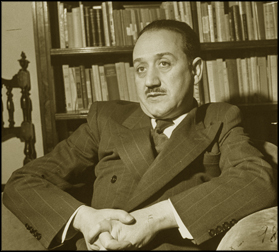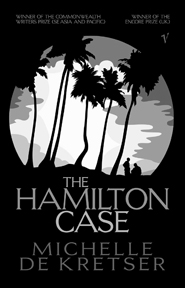Looking before, after and abroad
Modern Sri Lankan Literature:
by Dr. Wilfrid JAYASURIYA
 |
|
Ignazio Silone, the Italian author who
won the Nobel prize for literature |
The story of the return to a once beloved place or person is a common
theme, perhaps an archetypal theme, focusing on the validity of memory
and the concepts of space and time in our lives. One could abstract
oneself from the specifics of time, place and memory and think of these
stories as having a commonality about existence. Ignazio Silone, the
Italian Nobel prize winning author, who was very popular in Ceylon in
the early post independence decades, was well known for his story,
“Return To Fontamara”. Fonatmara is a village located in Southern Italy,
which was a poverty stricken agricultural area, in the post war period.
The protagonist in the story returns to his village and listens to a
story about a man who was sent to gaol for a long period, for a crime
which involved the death of the man’s girl friend.
Later, when the man came back from gaol, it appeared he had gone to
gaol to cover up for his girl friend’s reputation, though he was himself
innocent.
The theme of return is therefore tied up with the theme of
revelation.
The theme of return is developed in Chitra Fernando’s “Bird of
Paradise,” a short story about a Sri Lankan migrant . This theme was
developed as a full length novel but this story seems to encapsulate a
recurring theme in the return story: the loss of a loved one when the
returnee was absent from the scene. The death of the loved one enables
the writer to develop the theme of nostalgia for the past, as it existed
when the returnee lived there, and contrast it with the present, while
also developing a contrast between her feelings for her new “home” in
Australia and for her old “home” in Ceylon, as it is seen here and now.
Remembering how she had fled from Negombo, back to Sydney almost
twenty one years ago, she thought of Dominic Perera the immediate cause
of her departure...What would her life have been had she married Dominic
Perera? But it was Ray Maxwell she had married...She had been looking
for something: a being unconstrained by custom and tradition, a splendid
freedom. Yet she’s settled so easily for comfortable ordinariness, not
really different from her mother or Aunt Mary, from Srini. Her thoughts
drifted...The smell of jasmine was in her nostrils. She was sitting in a
latticed verandah with potted ferns lining the steps. Was it Aunty Mary
scolding Jose or simply a chatter of crows? And then out of the purple
blaze of the bougainvillea flew out the shining bird. “Its you-you I
always wanted,” she called out jumping up from her chair. But the bird
had vanished. She only saw the endless distances of the sky as she stood
alone in the verandah of the silent house. (Kaleidoscope 69)
In this last paragraph, from the story, Chitra Fernando displays her
truly gifted mastery of the narrative mode. Within the forty year period
from the 1950s to the 1990s, the consciousness of Sri Lankans, which was
limited in aspiration to the immediate environment of their newly
independent country had expanded to possibilities in other continents
and other roles, and literature reflected these changes.
Isankya Kodituwakku, in her collection “The Banana Tree Crisis”
includes a story titled “The House In Jaffna” which deals with the theme
of the longing for return to the homeland, this time from England to
Jaffna instead of from Australia to Negombo. In her story about Jaffna,
a Tamil family from London comes back with great optimism to Jaffna,
when the peace agreement or the ceasefire of 2000 is confirmed. They
find their house destroyed and occupied and their former servants and
neighbours are extremely unfriendly. They don’t see any future for
themselves and get back to London.
The impact of the story consists of the disparity between the
internal vision that Nadarajah has of his native land and family house
and childhood environment and the reality of the present. It is a simple
contrast between London and Jaffna but it is real. Its quality is what
Aristotle describes in one of his books as the “taste of the real.”
James Joyce, when theorising about literature in a passage from “The
Portrait of the Artist as a Young Man”, touches on this quality as a
marker of high achievement, the sense of being out there, outside the
mind of the narrator, there in its own right. In Joyce’s translation of
that quality it is called the “whatness.” That is a quality, which Carl
Muller’s fiction does not share, marked as it is by the power of the
imaginative fantasy, communicating, as it does, the wonderfully shaded
vision of the creator himself. When Isankya talks of Nadarajah we know
that she is not talking of herself. She is talking of the “whatness” of
Jaffna. One has to read the whole story to appreciate the reality. I
shall quote the beginning and the end:
The House in Jaffna
When Nadarajah rode the train each evening from Waterloo Station to
his home in Teddington, he almost always had a bright peaceful look on
his face.
Most people who saw him probably thought he was a man with a happy
family life, who rode the train in anticipation of home. Although the
assumption about his family life was correct, they were wrong when they
thought it was a look of anticipation. Rather it was a look of memory.
Because the home he was thinking of was not his present home forty five
miles out of London but an old, white walled house in Jaffna. (from The
Banana Tree Crisis)
  The reader is brought into a discussion, with the writer, about
correct and incorrect assumptions and so the story becomes a
participative event the reader has with the writer. The maintenance of
this tone of confidentiality is the special characteristic of Isankya’s
narrative. The various shocking and unlikely events that happen, when
the family moves to Jaffna, include the rude rebelliousness of the
family’s former servant’s son, who touts an AK47. But this scene is
given a wonderful twist when the old servant, Siva, turns up and drags
his LTTE son away by the neck, as he would have done when Nadarajah was
a child, in the good old days, when he was the little master of the
house. So a bizarre social situation is created and Nadarajah realizes
that everything is far from being on all fours with his dream of home. The reader is brought into a discussion, with the writer, about
correct and incorrect assumptions and so the story becomes a
participative event the reader has with the writer. The maintenance of
this tone of confidentiality is the special characteristic of Isankya’s
narrative. The various shocking and unlikely events that happen, when
the family moves to Jaffna, include the rude rebelliousness of the
family’s former servant’s son, who touts an AK47. But this scene is
given a wonderful twist when the old servant, Siva, turns up and drags
his LTTE son away by the neck, as he would have done when Nadarajah was
a child, in the good old days, when he was the little master of the
house. So a bizarre social situation is created and Nadarajah realizes
that everything is far from being on all fours with his dream of home.
Siva [the old retainer] walked out of the compound and Nadarajah
stared after the old servant for a few minutes before he turned to face
his mother, standing a few feet from him. When she caught his eye she
came over and patted his shoulder absently. “The fish that has a narrow
escape from the heron fears all that is white,” she said, her eyes
already drifting away in another direction.
The tension and confusion created in the mind of the returnees is
aptly conveyed in this pithy analogy. Who is the heron and who the fish?
But the incompatibility of the two is the essence of the Jaffna
situation where Nadarajah still remains “Mr Nadarajah.”
In other stories such as “Michelle de Kretser’s “The Hamilton Case”,
the writer who has left the colonized territory and resettled in another
country reverts back to her country of birth and sees it with a
distancing and satirical vision, implicitly measuring it against the
preferred new cultural home which she has adopted. Though there is a
certain nostalgia in the detailed memories of the past in another
country, where interesting things happened because you belonged to an
elite group whose activities were significant, yet those very activities
are now seen as both exciting and irrelevant to the writer’s own future.
One of the most interesting characters, if not the most interesting, is
the character of a Sinhalese landowner who moves around in the elite
Burgher circles but is at the same time the true symbol of the darkness,
which the European enlightenment had hoped to dispel, once and for all,
from the country and society which they had colonized. I often wondered
whether this Sinhalese landowner in the Burgher social network is a
figure for D. S. Senanayake, (also known as “Jungle John”)who appears to
have been a figure of fun, among sophisticated and westernized Ceylonese
groups. Diyonisius Sumanasekera in De Lanerolle’s play “Fifty Fifty”
appears to be a figure for “D.S.” too.
In Chandani Lokuge’s novel, “If The Moon Smiled”, a Sri Lankan
Sinhala woman, who has emigrated to Australia still feels a longing for
home expressed as a need for self fulfilment and an escape from
loneliness.
“As a young woman in Sri Lanka, Manthri marvels at the promise of
life and yearns for a future of fulfilled dreams. Years on, she finds
herself in a loveless marriage, in a foreign land, and estranged from
her two Australian children.
Torn between an idyllic past to which she cannot return and a present
that breaks her heart, she never loses touch with those dreams, nor
abandons her passionate enchantment with life.
“I go down to the river, unheeding my mother’s disapproval. I dip
into the lazily flowing water. Here, at least, nothing has changed. The
bath-cloth balloons around my body and I press it down. I loosen my hair
and let it spread where it will. I open my hands upwards on the water’s
surface, languidly remembering. All, all that is familiar. The promise.
The promise of life.”
However, when she revisits Lanka, in her search for a fulfilling
experience, that she has not found in Australia, she is set upon by
young men on the beach in the south of Sri Lanka, and that experience of
near rape, is a countervailing lesson depleting her desire for the past.
Thus in the works of Chitra Fernando, Michelle Kretser, Ishankya
Kodituwakku and Chandani Lokuge a variety of experiences pervade the
narrative of arrival and departure, the genre of literature which looks
before and after and also abroad.
We look before and after
And pine for what is not
Our sincerest laughter
With some pain is fraught
Our sweetest songs are those which sing of saddest thought
|

